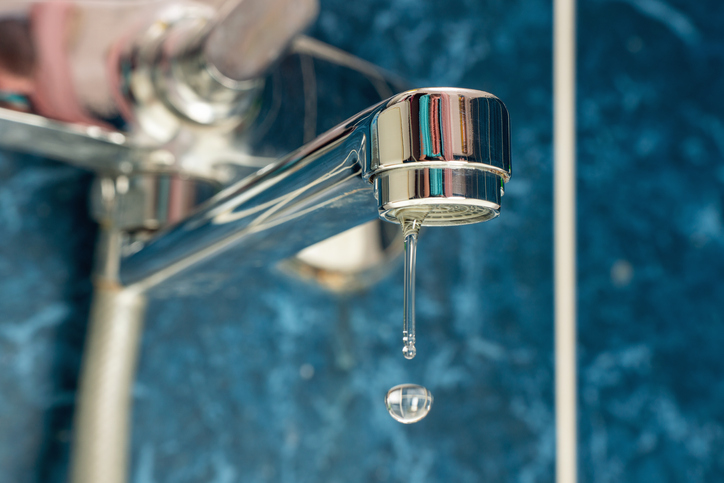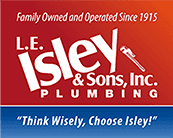
Water is one of our planet’s most vital resources, and as the demand for water continues to rise, it’s crucial for every homeowner to play their part in conserving it. At L.E. Isley & Sons, Inc., we understand the significance of water conservation and its impact on both the environment and your utility bills. In this blog, we will explore five effective strategies to help you conserve water through smart plumbing practices, enabling you to make a positive impact on the planet while saving money in the process.
Fix Those Leaky Faucets
A small drip may not seem like much, but even a minor leak can waste a significant amount of water over time. A leaky faucet can waste hundreds of gallons of water each year, leading to higher water bills and unnecessary strain on water resources. Thankfully, fixing these leaks is often a simple task that can be done by homeowners themselves.
Start by checking all the faucets in your home, both indoors and outdoors, for any leaks. Replace worn-out washers or O-rings and tighten any loose connections. Addressing these leaks promptly not only saves water but also prevents potential water damage to your home.
Upgrade to Water-Efficient Fixtures
Older fixtures in your home, such as toilets, showerheads, and faucets, may be using more water than necessary. By upgrading to water-efficient fixtures, you can significantly reduce your household’s water consumption without compromising on performance.
Install Smart Irrigation Systems
Maintaining a beautiful garden or lawn doesn’t have to be water-intensive. Traditional irrigation systems often lead to overwatering, which not only wastes water but can also harm your plants. By installing smart irrigation systems, you can ensure that your outdoor spaces receive the right amount of water at the right time.
Smart irrigation systems use weather data and soil moisture sensors to adjust watering schedules automatically. They can even be controlled remotely through smartphone apps, allowing you to make real-time adjustments based on weather patterns and plant needs. With this technology, you’ll achieve a thriving landscape while conserving water.
Collect and Reuse Rainwater
Rainwater harvesting is an eco-friendly practice that dates back centuries. By collecting rainwater, you can use it for various non-potable purposes such as watering plants, washing your car, or even flushing toilets. Not only does this reduce your reliance on the municipal water supply, but it also decreases stormwater runoff, which can be harmful to the environment.
To get started, set up rain barrels or cisterns to capture rainwater from your rooftop or other surfaces. Make sure to position them securely and cover them to prevent debris and mosquitoes from entering. You’ll be amazed at how much water you can collect during rainy seasons.
Practice Responsible Indoor Water Usage
Being mindful of your water usage indoors can make a substantial difference. Simple habits like turning off the tap while brushing your teeth, taking shorter showers, and running the dishwasher and washing machine only with full loads can add up to significant water savings.
Additionally, consider reusing water when possible. For instance, you can collect the water used to rinse fruits and vegetables and use it to water your plants. Installing low-flow aerators on your faucets can also help reduce water consumption without compromising water pressure.
Conserving water at home is a responsibility we all share. By implementing these water-saving strategies you can contribute to the preservation of this precious resource while lowering your water bills.
At L.E. Isley & Sons, Inc., we are committed to helping you save water and money at home. Our team of expert plumbers can assist you with water-efficient fixture installations, leak repairs, and more. Contact us today to learn how we can help you achieve your water conservation goals.
